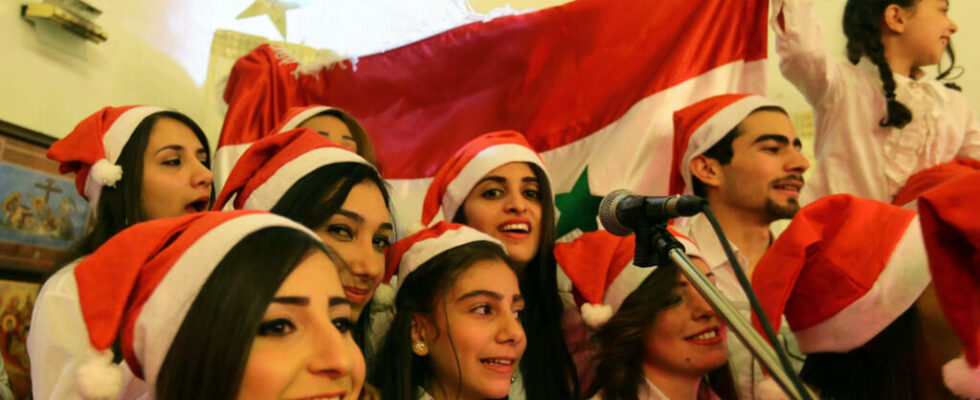The new Syrian authorities, who took control of the country almost a month ago, are increasing signs of openness and inclusion, with the aim of reassuring the international community, but especially religious minorities. Despite gestures of assurance, such as the meeting on Tuesday, December 31 of the new leader Ahmed al-Charaa (al-Joulani by his veteran name) with representatives of the Christian community, the coming to power of Islamist rebels worries this community that fears persecution.
2 mins
The image ofAhmed al-Sharaa posing in a suit and tie in the middle of sixteen representatives of the Christian Churches, Orthodox, Catholic, Armenian-Orthodox, Anglican and Syriac-Orthodox in particular, is a first. “ The head of the new Syrian administration Ahmed al-Charaa meets a delegation from the Christian community ”, indicated the “ General command » on his Telegram application account.
The message is intended to be reassuring about the moderate intentions of this new power installed by HTS, a group formerly affiliated with al-Qaeda. At the head of a multi-faith country and multi-ethnic, scrutinized by the international community, al-Charaa is committed to establishing the rule of law and respecting all minorities.
Especially since the power of Bashar al-Assadwhose family from the Alawite Muslim minority has reigned supreme over the country for more than half a century, has long posed as protector of minorities – while repressing all dissent.
Also readSyria: the protection of minorities can only be done “with a series of very diverse laws”
Decades of persecution
This political transition is notably supported by Egypt which, like France, hopes for the integration of all communities in their diversity. Christians’ fears and doubts about their future can be explained by decades of Islamist persecution. There were 10% Christians in 2003, then 5% at the start of the civil war in 2011.
Today, only 200,000 to 300,000 of them are believed to remain in the country. A fear reinforced by several recent incidents and attacks against the Christian community, some of which have been attributed to foreign jihadist fighters, which pose a major challenge to the new Syrian power.
Hundreds of Christians in Damascus protested last week when a Christmas tree was set on fire in a small town in central Syria. The act of vandalism perpetrated by masked men – foreign fighters from a small jihadist group, according to an NGO – was condemned by a local leader of Hayat Tahrir al-Sham, the former Syrian branch of al-Qaeda which broke up in 2016 its links with the jihadist organization. Likewise, thousands of Alawite Syrians demonstrated on December 25 in several cities across the country after a video showing an attack on one of their sanctuaries.
Also readMiddle East: upheavals in 2024, uncertainties for 2025
